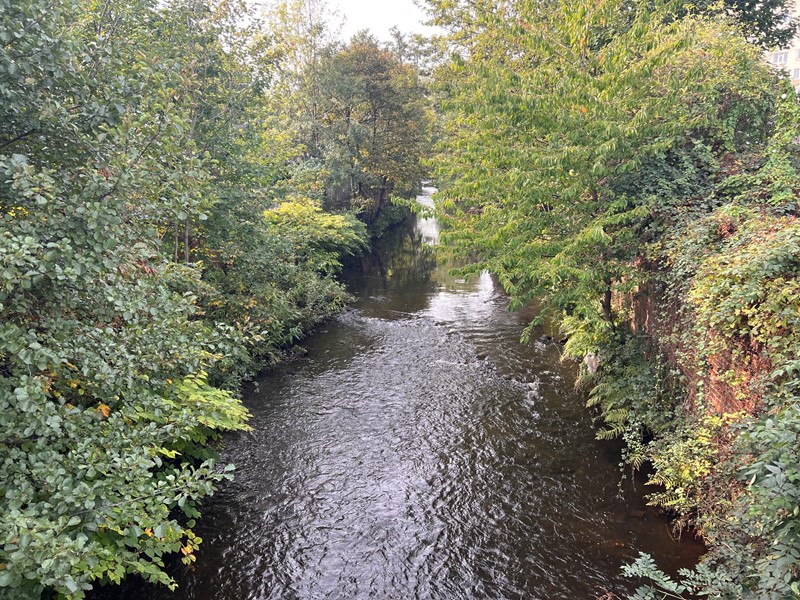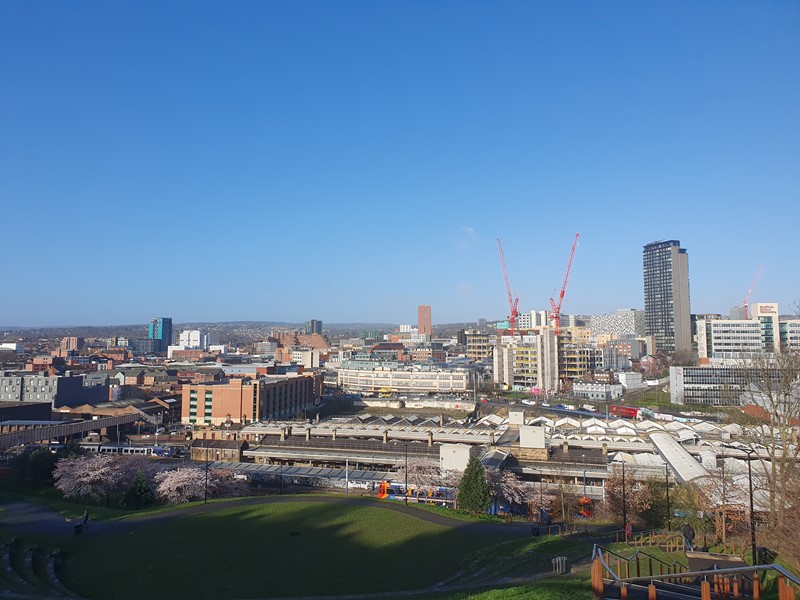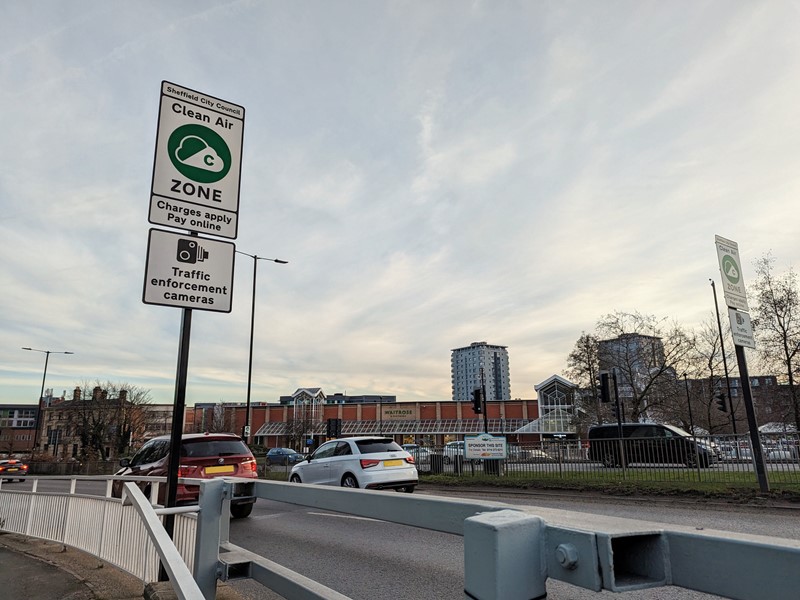Our first climate summit invites the people of Sheffield to help us focus on building back better from the pandemic and how we can work towards our Zero Carbon target.
Addressing the impact of a Nature Emergency in Sheffield

Councillor Alison Teal, Cabinet Member for Sustainable Neighbourhoods, Wellbeing, Parks and Leisure at Sheffield City Council, said: “We strongly support declaring a nature emergency for many reasons. The climate crisis and pace of modern development undoubtedly has a huge impact on our natural world, with many wildlife and plants suffering the consequences. Our Parks and Countryside service is working in partnership with local environmental organisations like the Sheffield and Rotherham Wildlife Trust and the Sheffield Lakeland Landscape Partnership, to address this crisis and enhance biodiversity in the city.
“We recognise the essential role that nature plays in our eco-system and the urgency to defend our wildlife so it not only survives but can thrive. Sheffield is one of the greenest cities in Europe, with more than 800 green open spaces across the city, and these green assets and environments put us in a strong position to be ambitious and deliver projects that protect and put nature first.
“Sustainability and ecology are fundamental to our priorities and can be seen in every part of our work. Ongoing projects include wildlife friendly roofing for bats and birds, the introduction of ponds to support species such as the Great Crested Newt, relaxing of mowing routines and cultivation of meadows to support bee and insect populations, the huge restoration project at Forge Dam, and many community forestry projects that will contribute towards our commitment to plant 10,000 more trees each year under our trees and woodlands strategy.
“We’re also prioritising green spaces and parks in new developments, such as Grey to Green which has transformed the concrete landscape of our city centre with wild flowers, trees and shrubs, and Pounds Park, a new public space planned within the Heart of the City development.
“We agree with the need to address declining biodiversity and our aim is to develop a city-wide biodiversity action plan as soon as possible. It’s encouraging to see so much public support for nature and our environment, and we will look to bring a motion to council at the earliest opportunity to declare a Nature Emergency.”
Councillor Terry Fox, Leader of Sheffield City Council, said: “In line with our commitments to achieve net zero and address the climate crisis, the nature emergency we are facing is an ideal subject for our new cross party transition committee.
"We all agree that the state of our climate and declining biodiversity is an emergency of the highest level and we'll be discussing how we can progress this with the urgency it deserves."
Sheffield City Council aims to develop a comprehensive biodiversity action plan for the city. This will include updated habitat and species plans that link to the Local Plan and the Outdoor City, as well as forthcoming nature recovery networks and the Green and Open Spaces Strategy and Trees and Woodland Strategy to provide a future vision and roadmap for Sheffield’s environment.
For more information or to find out how you can get involved in nature and ecological projects in Sheffield contact Sheffield Parks and Countryside on 0114 2500500 or email parksandcountryside@sheffield.gov.uk
Current or recent ecology projects in response to the Biodiversity emergency
Species Specific Projects
Working with Froglife we have built a corridor of 34 ponds to link isolated Great Crested Newt populations that aims to form the basis of the new proposed District Level Licencing area with Natural England. Following nearly 10 years of working with national amphibian and reptile conservation charity Froglife we developed a ground-breaking project to help link up genetically isolated populations of this protected species. The project also targeted other rare species that use similar habitats namely Willow tit and Harvest mouse. Willow tit were recorded breeding within the corridor in the first year. We are currently working with Sheffield University on PhD research projects on reptiles and amphibians within the corridor.
Sheffield Watervole conservation
On our request Yorkshire water fenced off a large section of the Redmires conduit to prevent access from dogs which were disturbing the protected voles. This fencing lead to further scientific study and conservation projects in partnership with Sheffield and Rotherham Wildlife Trust on Watervole in the area. We are currently conducting Watervole surveys as part of the Sheffield Lakeland Landscape Partnership project to better understand their distribution and where to target conservation measures to help protect the UKs fastest declining mammal.
We have worked alongside partners in the conservation of Sheffield’s two remaining White Clawed Crayfish ARK sites in the Limb Brook and Wyming Brook. We are currently working with the Environment agency SRWT and crayfish consultants from Sheffield University on further improvements to the Limb brook as part of a Natural Flood Management project.
Sheffield recently hosted the National Willow tit conference with the RSPB and is one of the few remaining areas where this bird can be found. We have numerous Willow tit projects throughout the city aiming at halting the decline of the UKs fastest declining bird.
Bats
We have been working in close collaboration with housing services on the re-roofing project of 1,000 houses in Hackenthorpe, as part of a 5 year re-roofing scheme across the city. This ground-breaking project is the first of its kind in the country. Expertise, information and consultation has been provided from a variety of sources including South Yorkshire Bat Group, Sheffield & Rotherham Wildlife Trust, ECUS and independent ecological surveyors to help develop the scheme, including the design of a bespoke bat access tile for 40% of the properties, for maximum benefit to roosting bats and nesting birds to ensure that this valuable wildlife resource in SCC Council house roofs is maintained and enhanced.
The ecology unit and community forestry have been planting native Black Poplar, the UKs rarest timber tree. We have sourced clones from numerous sources around the country to ensure that we have a mix of genes to restore our rarest tree.
Chelsea Elm
We have taken cuttings from the Chelsea Road Elm recorded as one of the UKs favourite trees. The cuttings are being grown on by a professional tree nursery so that future Chelsea Elms can be planted throughout Sheffield.
White Letter Hairstreak
We designed and implemented a mitigation plan for the White Letter Hairstreak Butterfly and translocated eggs from the Chelsea Elm to Dutch Elm Disease resistant Elm Trees with the help of SRWT. Community Forestry team also plants more Disease resistant Elms for the Hairstreak Butterfly whenever Elm trees are removed on Butterfly sites.
As part of flood defence work we installed a number of Sand Martin nesting banks along the River Don. At least one of these has been at nearly full capacity with breeding birds every year since.
Raptor Conservation
We have been in discussion with the Sheffield Raptor Monitoring Group about a number of potential partnership projects.
Sheffield & Barnsley Local Biological Records Centre
The Ecology unit manages the local biological records centre for Sheffield and Barnsley. This allows us to track the populations or declines of species and acts as an early warning system. It informs us where we should target interventions when they are needed.
Landscape Projects
Significant grant funding from the Woodland Trust through our Treevitalise Project is helping us to meet our goal of planting 10,000 trees across Sheffield in the past year (and for each year over the next decade). This work, which is part of our Trees and Woodlands strategy, is being supported by many volunteers and schools.
Urban Nature Parks
The Parks and Countryside service is working to expand on the success of the Urban Nature Parks project and develop more ecology parks with a high wildlife value throughout the city. During the pandemic our maintenance teams have relaxed the mowing regimes on approximately 105 acres of grassland, allowing more meadow and wildflower areas to flourish. This work is the kick start of our second phase of the Urban Nature Project which aims to expand nature areas across the city’s parks and countryside green and open spaces.
Nature Recovery Networks
The Ecology Unit is working with SRWT and other partners to develop a nature recovery network map for the city. This will highlight areas where ecosystem connectivity is poor and where to target ecological management and funding from Biodiversity Net Gain.
District Level Licencing
Thanks to the premptive partnership working with Froglife, the Ecology unit has developed a landscape scale pondscape of over 60 ponds and wildlife corridor as the foundation of the new District Level Licencing area. This will form part of a landscape scale wildlife area which will receive funding from development to manage for wildlife. If realised the proposed area will stretch over 25km of South East Sheffield and the Rother Valley with interconnected wildlife corridors running up the Short Brook, Ochre Dyke, Shire and Shirtcliffe Brooks. We are currently working with Natural England and Wildscapes to install further ponds in the area and will be joining up with other Local Authority Partners to expand the DLL area further.
Community fundraising from the Friends of the Porter Valley has raised over a £¼ million to enable the development of a project to renovate the historical dam and associated access routes in this fabulous, wooded area of the valley in South West Sheffield.
Eastern Moors
The Ecology unit has been working with National Trust and RSPB partners on the eastern moors to develop their management plan and tree planting strategies in the Sheffield Uplands.
Improvements to natural space visitor facilities
Shirebrook Valley Visitor Centre renovation (Woodhouse Ward). The improved accessibility of the centre is now a great space for delivering visitor access and engagement with the valley, its fabulous meadow, woodland and wetland habitats, and rich heritage.
There have been a number of improvements to the accessibility of the Ecclesall Woods Woodland Discovery Centre, which is a wonderful starting point for a walk on the wild-side, through this marvellous ancient woodland.
Higher Level Stewardship
The Ecology unit has oversight of all the councils Higher Level Stewardship schemes and will be developing further Government Environmental Land Management schemes (ELMS) with colleagues as these come online.
Strategic efforts to protect biodiversity
The Parks and Countryside Ecology Service is leading the strategic efforts within the City to protect, maximise, enhance and repair biodiversity, and re-wild our City.
We are currently devising new and innovative Local Plan policies; about to start the training of our key SCC staff and members on biodiversity net gain (BNG) - a key output of the forthcoming new Environment Bill; we have defended the ecology of the Loxley River Valley, as key expert witnesses in a major planning inquiry, for the people of Sheffield; we have investigated the feasibility of reintroducing native mammal species, in serious efforts to re-wild our City; and work with partners across South Yorkshire and the City Region to inform nature recovery mapping.
Planning and Biodiversity Net Gain
The Ecology Unit continues to provide technical input to applications throughout all stages of the planning process to assist new developments in achieving net gains in biodiversity in line with national planning policies. We are working closely with colleagues in Planning to further develop robust policies in the emerging Local Plan that protect and enhance biodiversity.
Partnerships for Nature
We support and work in partnership with a number of organisations that provide education and learning, management and improvement of the city’s wildlife sites and local nature reserves, including Sheffield & Rotherham Wildlife Trust – (Lakeland Heritage Project), the Green Estate, the Steel Valley Project and Sheffield Countryside and Conservation Trust. A great recent project in partnership with the Green Estate has seen colourful pictorial meadows spring up in Woodthorpe Ravine (Richmond Ward). This habitat development is part of a scheme which includes the creation of water habitat areas to manage the drainage from a new housing development (Sustainable Urban Drainage).



